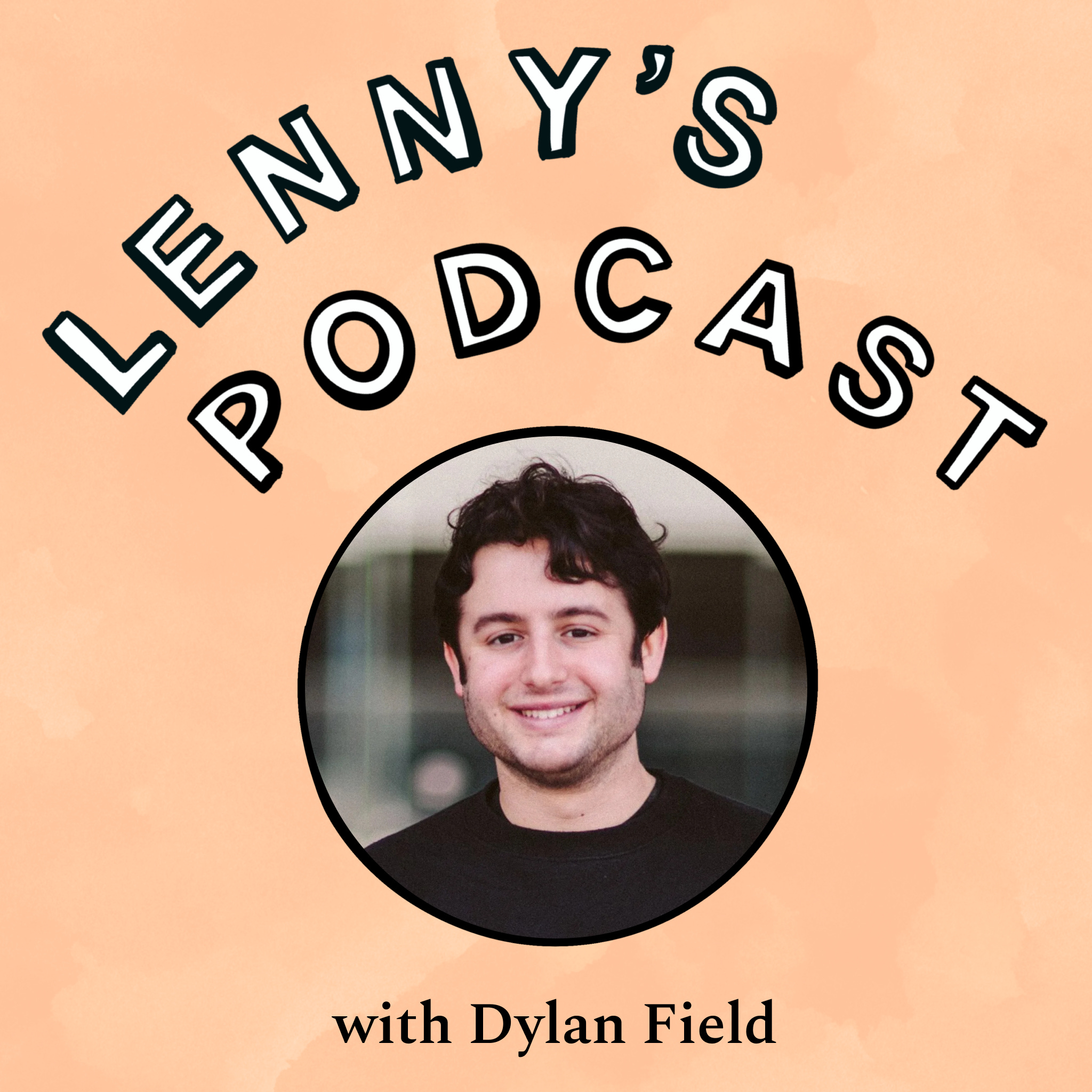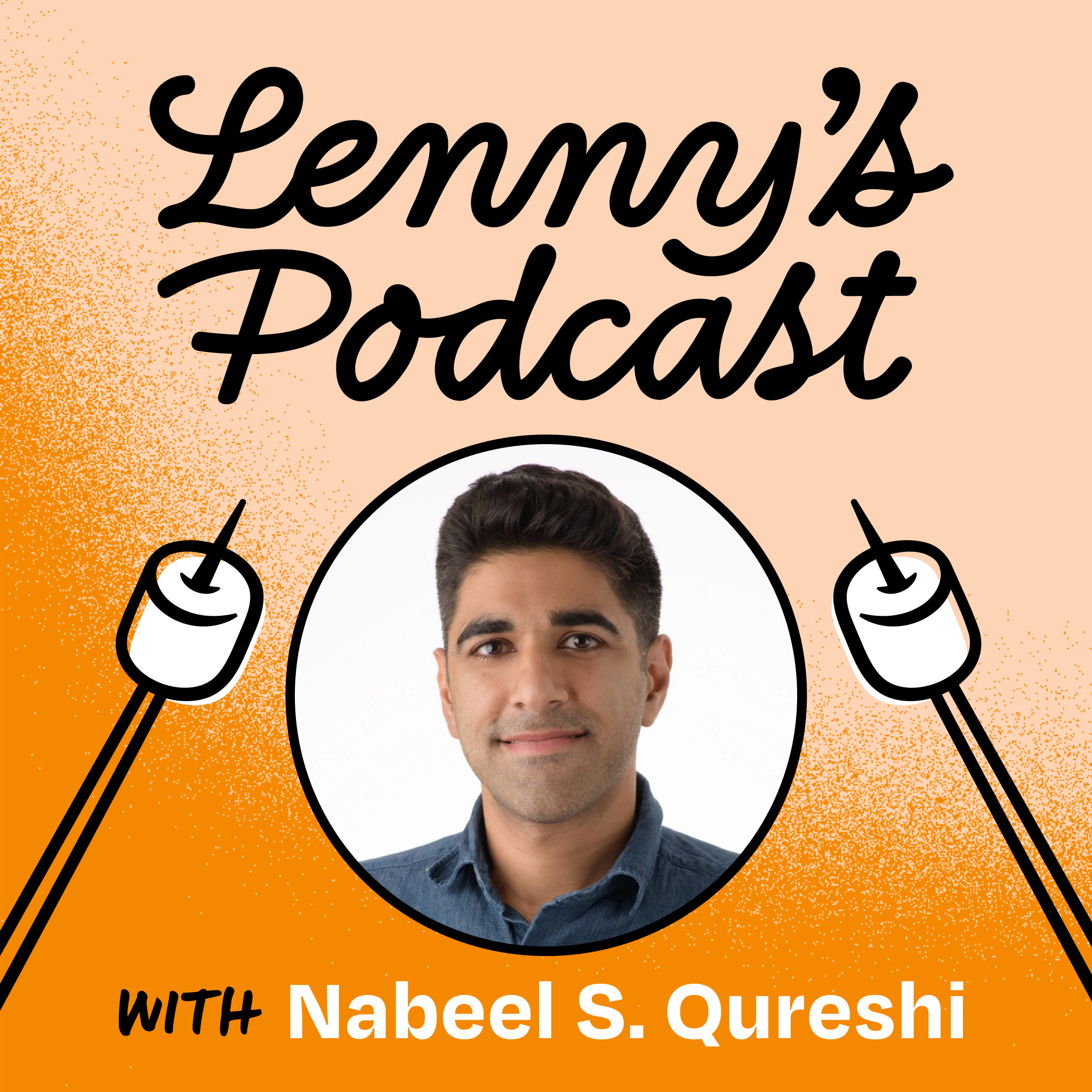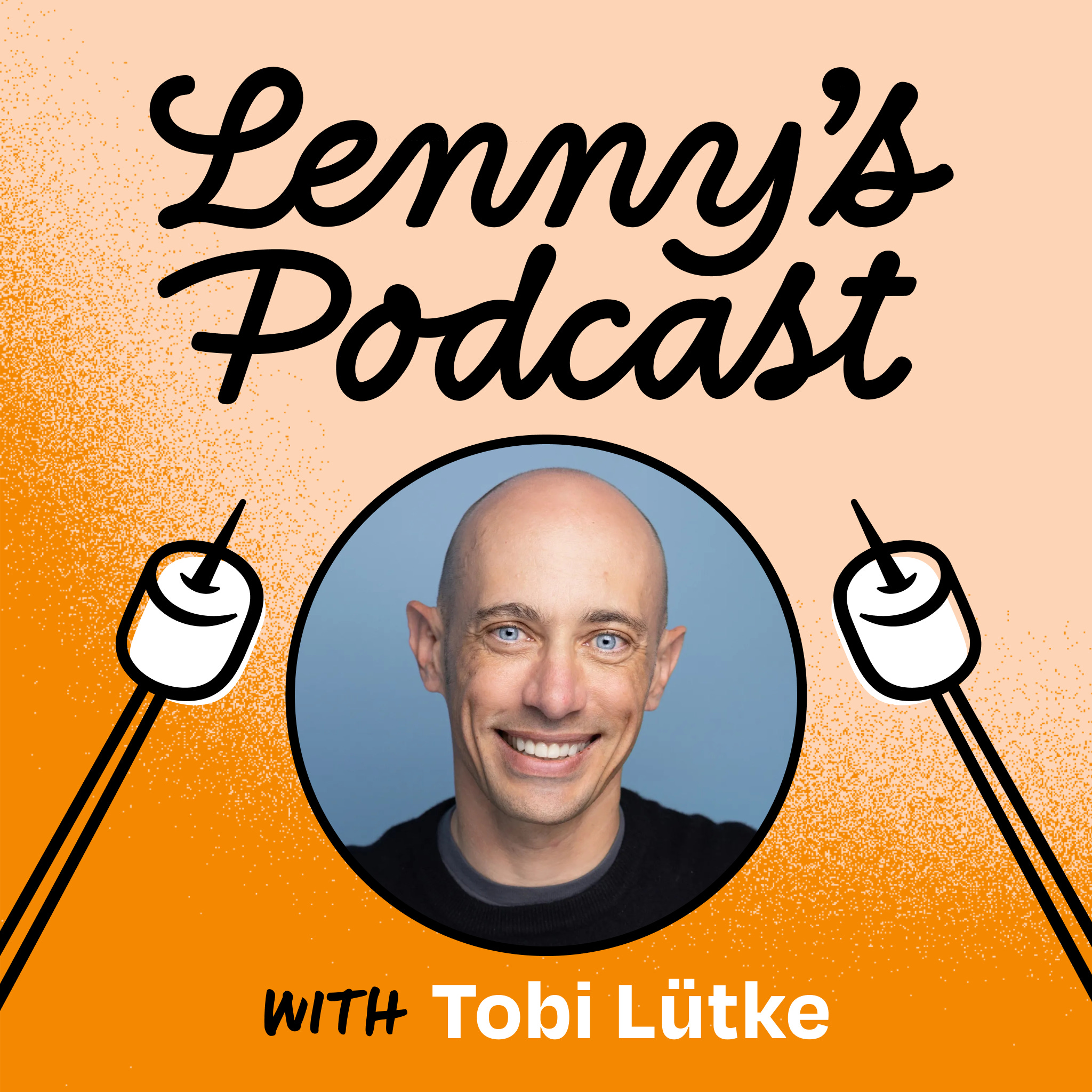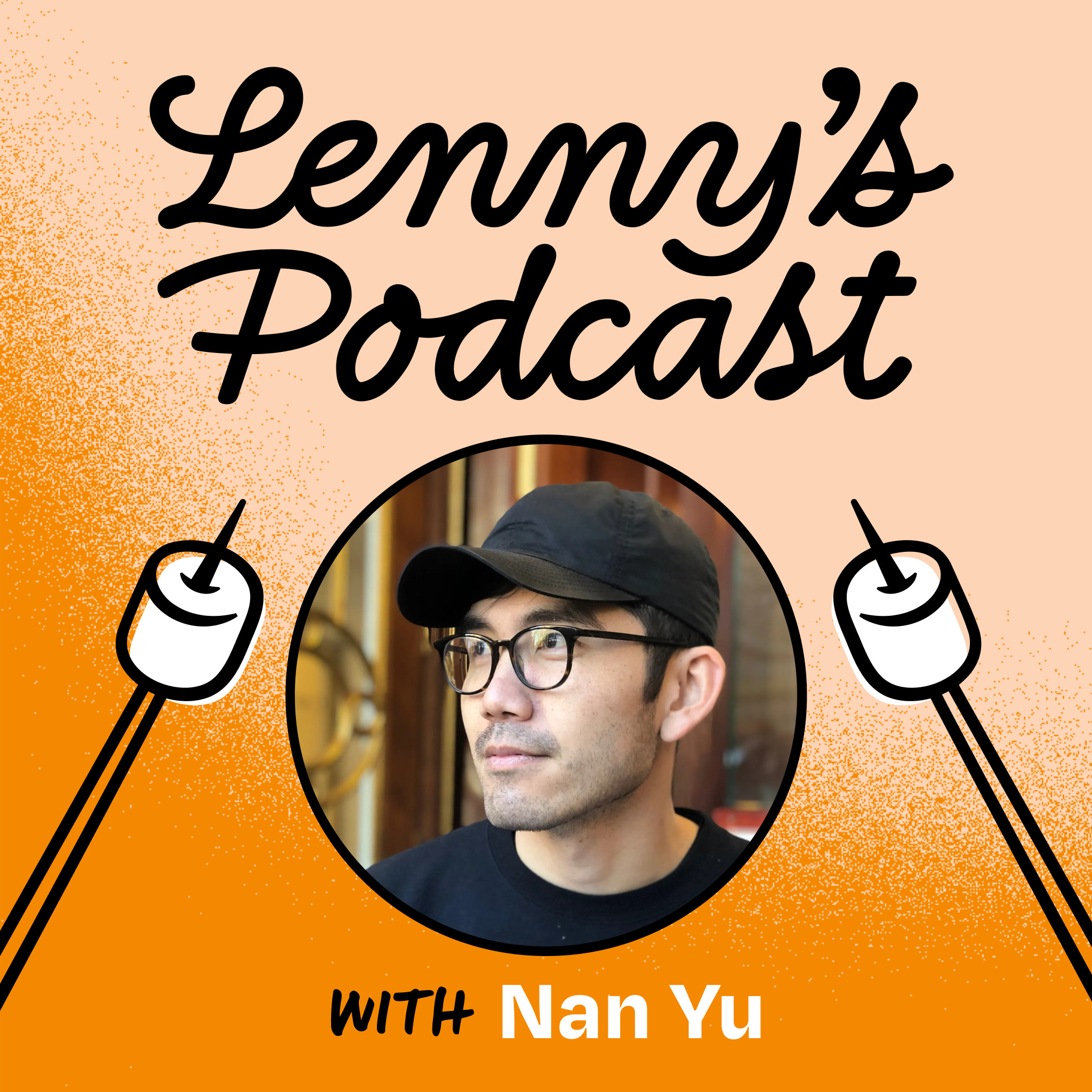
June 30, 2024 • 48min
Dylan Field live at Config: Intuition, simplicity, and the future of design
Lenny's Podcast: Product | Growth | Career

Key Takeaways
- Intuition as a hypothesis generator: Dylan views intuition as a way to generate hypotheses, which are then debated and tested with data. He emphasizes the importance of asking questions and getting to the root of problems.
- Importance of simplicity: Keeping products simple is crucial but challenging. Dylan stresses the need to constantly evaluate and simplify complex systems.
- Ship quickly, but maintain quality: While it's important to get products to market fast for feedback, there needs to be a minimum quality bar. Dylan advises aiming for a "minimally awesome product".
- Early user acquisition strategy: Figma initially reached out to influential designers for feedback, which organically led to adoption. Building relationships and seeking feedback was more effective than a pure growth hack approach.
- Leadership growth: Dylan attributes his growth as a leader to having a learning mindset, seeking mentorship from various sources including employees and the community, and constantly adapting.
- Product management value: The best product managers create frameworks that align teams, have strategic points of view, and bring everyone together towards shared goals.
- Future trends: Dylan is excited about AI tools like WebSim that allow for creative exploration and world-building.
Introduction
This episode features Dylan Field, co-founder and CEO of Figma, in a live recording at Figma Config. Dylan discusses Figma's journey, product development philosophy, leadership lessons, and thoughts on the future of design and technology.
Topics Discussed
Config Highlights and AI in Design (2:36)
Dylan expresses excitement about the community at Config and the emerging conversations around AI in design. He notes how discussions are focusing on the impact of AI-generated software on craft, quality, and the need for unique design as a differentiator.
- The Config community is a highlight for Dylan
- Conversations about AI's impact on design are emerging
- There's debate about how AI will affect design quality and differentiation
The Philosophy of Design (6:58)
Dylan defines design as "art applied to problem-solving," emphasizing the balance between creativity and addressing user needs. He states: "Design is often there is some component of creativity to it and unique expression that you're trying to provide and create and put out into the world, but you are also trying to do it and match it to a user need a problem that needs to be solved."
- Design combines creativity with problem-solving
- It's not pure art, but needs to have "soul" beyond utility
- Balancing artistic expression and user needs is key
Building and Refining Intuition and Product Taste (9:57)
Dylan describes intuition as a "hypothesis generator" and emphasizes the importance of debating ideas and using data to support or negate them. He constantly ingests information about Figma from various sources to refine his product intuition.
- Intuition as hypothesis generation: Generate ideas, debate them, and use data to validate
- Constant information gathering: Dylan reads user feedback from multiple channels
- Asking questions: Digging deep to understand root problems users are trying to solve
How to Influence Leadership (12:50)
Dylan advises that concrete artifacts and examples are most effective in changing his mind. He values thorough understanding and first principles thinking, even if it sometimes slows decision-making.
- Provide concrete examples and artifacts
- Be prepared to answer follow-up questions
- Understand issues from first principles
The Role of Product Managers (16:14)
Dylan discusses the value of product management, emphasizing that the best PMs create frameworks that bring teams together, have strategic points of view, and ensure project success beyond just hitting milestones.
- PMs should have a strategic point of view
- Creating frameworks that align teams is crucial
- Good process supports outcomes but shouldn't overshadow problem-solving
- Ensuring team satisfaction is part of project success
The Future of Product Management (21:12)
While acknowledging that roles are becoming more fluid, Dylan believes there will continue to be value in specialized product management, design, and engineering roles.
- Roles are becoming more fluid, with overlap in responsibilities
- Specialized knowledge in product, design, and engineering remains valuable
- The best PMs create frameworks with strategic points of view
The Importance of Simplicity in Design (22:20)
Dylan emphasizes the challenge and importance of maintaining simplicity as products grow more complex. He quotes the principle: "Keep the simple things simple, make the complex things possible."
- Simplicity becomes harder as products grow more complex
- Constant evaluation of complexity is necessary
- Local decisions can lead to overall system complexity
- Simplification often requires revisiting entire systems
The Long Road to Figma's Launch (26:10)
Dylan reflects on Figma's three-and-a-half-year journey to launch, acknowledging it took too long. He credits key hires like Sho Kuwamoto for helping catalyze the launch.
- Figma took 3.5 years from inception to launch
- Dylan acknowledges this was too long
- Key hires helped push the product to launch
Advice for Aspiring Entrepreneurs (27:44)
Dylan advises getting products out as quickly as possible to gather feedback, while still maintaining a quality bar. He introduces the concept of a "minimally awesome product".
- Ship products quickly to get feedback
- Balance speed with maintaining a quality bar
- Aim for a "minimally awesome product"
Knowing When It's Time to Ship (29:07)
Dylan discusses the balance between shipping quickly and maintaining quality. He introduces the concept of balancing quality, features, and deadlines, noting that software allows for iterative improvement post-launch.
- Balance quality, features, and deadlines
- Software allows for post-launch iterative improvement
- Determine the minimum feature set and quality bar for launch
Early User Acquisition Strategies (30:39)
Dylan shares how Figma initially reached out to influential designers, not just as a growth hack, but to genuinely seek feedback and learn. This approach organically led to adoption as designers appreciated the product.
- Used social network analysis to identify influential designers
- Reached out for feedback and learning, not just promotion
- Organic adoption followed as designers appreciated the product
Spotting Trends and Future Innovations (35:50)
Dylan discusses his interest in WebSim, an AI tool for creating "hallucinated" internet experiences. He sees it as an exciting form of "lean-forward entertainment" using AI.
- WebSim creates AI-generated internet experiences
- Dylan sees it as a form of world-building and entertainment
- Excited about the creative possibilities of such tools
Reflections on Leadership and Growth (39:20)
Dylan reflects on his journey from intern to CEO of a 1000+ person company. He emphasizes the importance of constant adaptation, learning from various sources, and maintaining a growth mindset.
- Mentorship can come from many sources, including employees and the community
- Maintain a learning mindset and be ready to absorb new information
- View leadership as both a privilege and a responsibility
Lightning Round (43:16)
In a quick-fire round, Dylan shares thoughts on various topics:
- Favorite recent product discovery: Exploring different language models and their unique capabilities
- Life motto: "When people give you advice, they're not giving you advice, they're giving themselves advice in your shoes."
- Childhood acting career: Dylan humorously reflects on his brief stint as a child actor
Conclusion
This conversation with Dylan Field provides valuable insights into Figma's journey, product development philosophy, and leadership lessons. Key themes include the importance of simplicity in design, the value of shipping quickly while maintaining quality, and the need for constant learning and adaptation in leadership. Dylan's perspectives on the future of design, AI, and product management offer thought-provoking ideas for professionals in these fields. His emphasis on community, responsibility, and continuous improvement underscores the values that have driven Figma's success.









